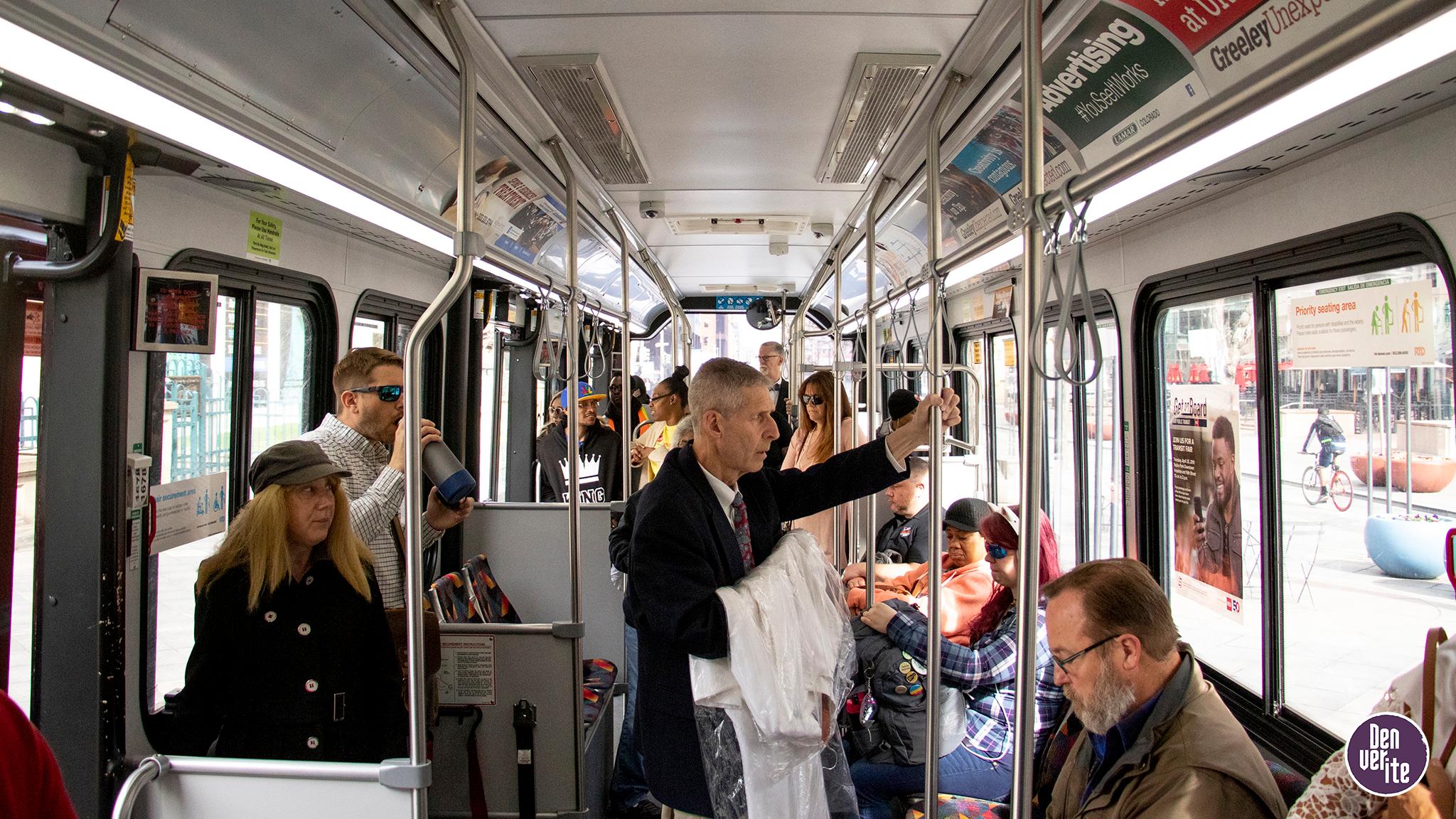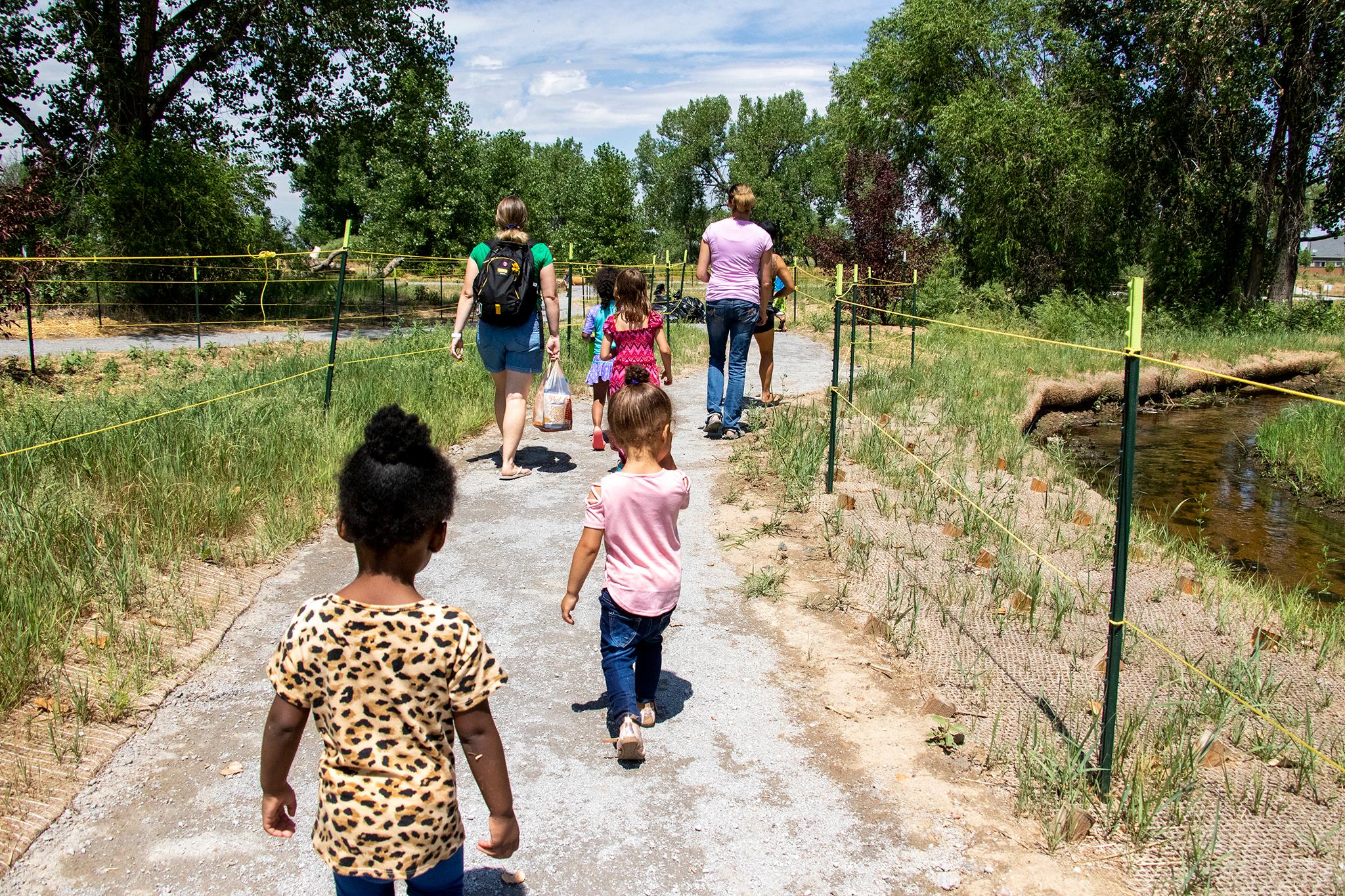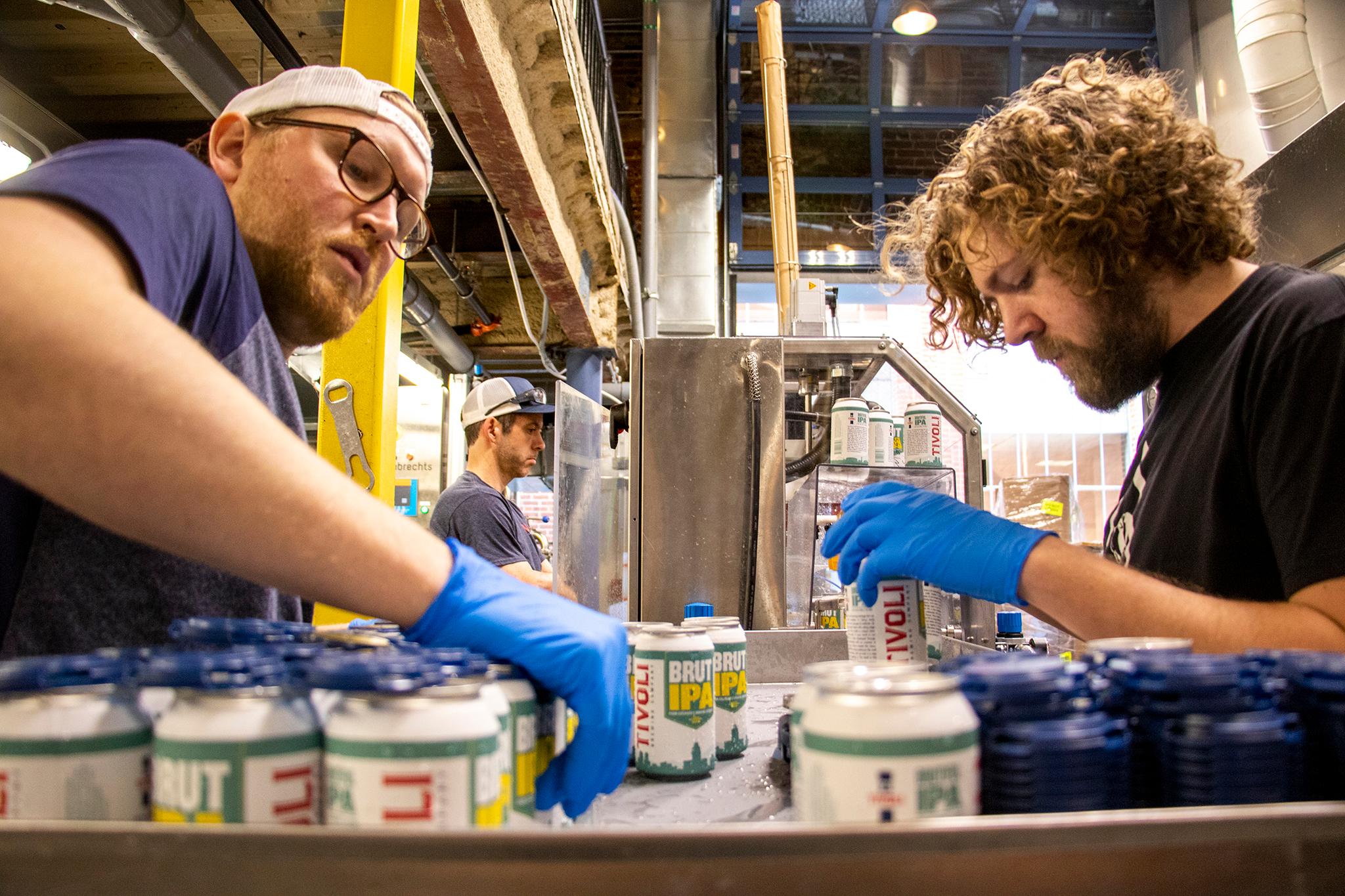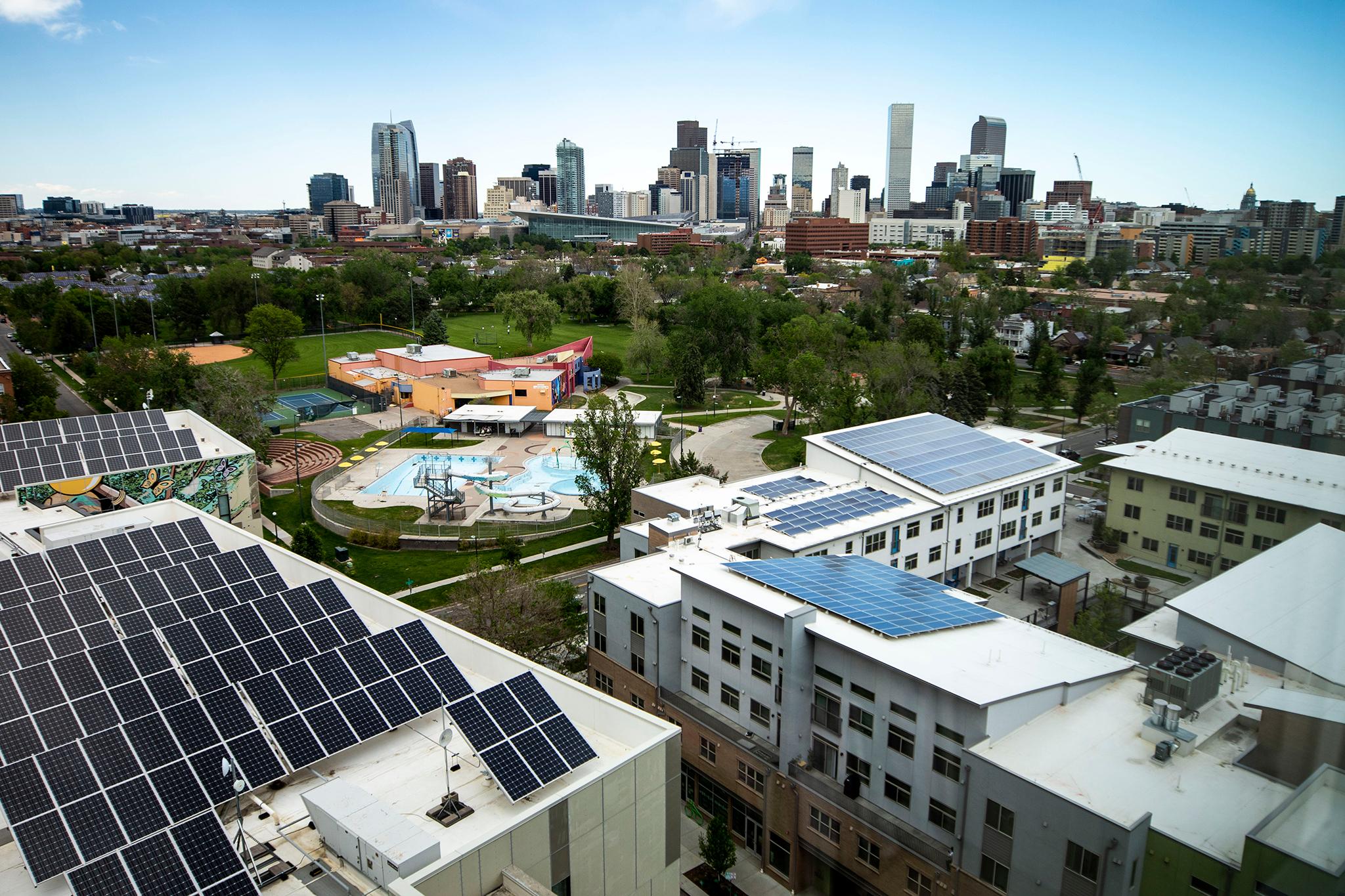In the 1900s, top-notch talent moved to cities to work for companies. Over the past 20 years, companies have started moving where the talent lives.
At least, that's J.J. Ament's theory. He's the new CEO of the Denver Metro Chamber of Commerce, the membership-funded nonprofit that's been trying to make Denver a business-friendly city since it was founded in 1867.
The Chamber, one of the oldest businesses in Colorado, preceded statehood and was an instrumental part of speeding up the colonization of the city with a thriving economy. One of the Chamber's first goals was to advocate for the transcontinental railroad to cut through Denver rather than Cheyenne, connecting the Mile High City to the coasts. Over the years, the Chamber has rescued Denver from economic slumps and adapted to the changing demands of an ever-shifting corporate landscape. The business -- a formidable political player -- has advocated for better roads, a transit system and even the construction of the Denver International Airport, to turn the city into a national hub.
These days the Chamber, through its Metro Denver Economic Development Corporation team, wants to draw fresh, highly educated talent from outside the state; that's the best way to attract new companies to the region and keep businesses here, Ament says.
"I think post 9/11, we saw a huge change," he explains. "People took a different assessment of how they wanted to live their lives. It was reinforced during the Great Recession of '08, and it has super accelerated here during the COVID pandemic. 'Hang on a sec, I, as an individual, I'm gonna decide what kind of life I want to live and where I want to live.'"
Before taking his new post in September, Ament, whose family has been in Colorado for six generations, led the Metro Denver Economic Development Corporation from 2017 to 2021, where he worked on the Chamber's regional branding campaign that tried to name what makes this place special and encourage new people to move here -- what's now being called the Elevation Effect.

With 115,000 newcomers in the city over the past decade and regional weariness about growth, does Denver really need to go out of its way to attract more people?
There's plenty to bring newcomers to Denver without trying to sell it. Though the Economic Development Corporations research showed Denverites are less than enthusiastic about the city's growth, the Chamber's theory is that staying competitive in attracting the biggest businesses to the area means bringing in the brightest up-and-coming workers.
So why advertise?
Denver's long been viewed from the outside as a destination for skiers, hikers and drinkers. Colorado Kool-Aid, aka Coors, lured people to the Front Range in the '70s, long before the spike in trendy craft breweries over the past couple decades. The easy-access to the outdoors have been an attraction since the early 1900s and has only grown since highways and interstates made the mountains more accessible. Since 2012, both the relaxed cannabis laws and booming industry have also been big sells without having to promote them.
Yet the metro area can be doing much more to bring in highly skilled talent, says Ament.
Under boot-stomping rock music, the narrator of the Elevation Effect's debut video states: "You can see that this place is more than just a pretty landscape. It's a cutting edge community built at the forefront of innovation. From these heights, you can see how the work fuels us, how this place pushes us and how our people chase bigger horizons. From these heights, you don't just see the elevation effect. You experience it."
The campaign -- tailored to individuals -- hints that Denver has a highly educated workforce, a solid work-life balance, great weather, world-class hiking, friendly and welcoming people, an international airport with nonstop flights to most cities nationwide, a comparatively affordable cost of living and industrious creatives who like to play as hard as they work.
As for children, there aren't any here by the looks of the campaign.

Do Denver boosters no longer want to draw in families?
Leaving out kids is an odd omission for a campaign trying to attract new workers to the region and raises a big question: What kind of workforce is this city's booming economy actually for? The video suggests Denver's a playground for hungry young professionals too busy working and climbing mountains to think much of future generations.
How did the Metro Denver EDC decide what should be included in its promotional materials for the Elevation Effect, and why aren't families front and center?
Data.
Prior to this branding campaign, "We weren't really using an evidence based approach to our brand management," explains Ament. "And so we decided that we were going to embark on that, and it was complicated, and it was hard. And it took two years to really be able to reach out into our community in a variety of ways."
The EDC spoke with local governments, economic development groups, business leaders and members of the Colorado workforce. The company hired a firm to send out direct surveys and even looked at anonymous data from Myers-Briggs personality tests.
"We grabbed that data to understand, 'Who is the Colorado worker persona? Who is the Colorado business?' in a really different and more robust way than has ever done before," Ament explains.
By early 2020, he and his team had finally built a brand and were ready for a roll-out.
"And then, of course, COVID hit," recalls Ament. "And we have the George Floyd murder. And we have social unrest."

If it was authentic, the branding campaign would have to survive the mess that was 2020...and 2021
Ament and his team paused during the tumult of the past couple years to ask themselves: would the Elevation Effect still be relevant amid the seismic events?
"A brand should survive and persist through those things, whereas a marketing campaign would get blown up," he explains. "It turns out, every indicator that we had [before] all of those events were just emphasized even more so [after] those events. So we were really reassured that we were on the right track.
"And what we were finding is that no matter who you were -- race, gender, whether you lived here a long time, or whether you moved here recently -- we're all kind of saying the same thing," he continues. "There's just something about the Metro Denver region and Colorado that in one way, it's kind of hard to put your finger on. But there is just this feeling of: I can come here from somewhere else, and I'm welcome."
But are kids welcome?

Corporations do care about how child friendly Metro Denver is -- even if workers with families aren't part of the branding campaign.
When Ament has traveled the country promoting Denver as a place for corporations to do business, human-resource departments at companies grilled him: "Is there a great place for my kids to go to school? Is the community welcoming and inclusive? Are there opportunities for good jobs? Can my kids get a good job after school without having to move away? So all of those things, I think, figure into that Elevation Effect that we've talked about."
Even if all of that's not exactly highlighted in the campaign.
In 2018, when Denver was courting the VF Corporation to move to the city, his team brought Denver Public Schools' director of Choice and Enrollment to explain the city's education system to employees.
Choice matters to Ament, a free-market enthusiast who is quick to admit the city has flaws when it comes to being a landing spot for workers with kids.
Denver could be safer. The schools could be better. Housing could be more affordable.
"We're not perfect at all that stuff," Ament admits. "There are areas where we can most certainly improve -- including price."
Still, he argues downtown Denver is more family friendly than urban centers in larger coastal cities -- and once COVID-19 has been managed, he imagines even the city's center will come to life again.
"Once the health emergency passes, we can emerge," Ament says. "The economy will be different, but we'll withstand. This was not an economic emergency that started all of this. There's nothing wrong with our underlying economic systems. Democratic capitalism, free enterprise -- that was all working just like we want it to. In fact, Colorado was leading the nation in so many categories."

So who gets to thrive in that system?
In attracting new talent to Metro Denver, the EDC and Chamber are doing an especially good job attracting millennials who haven't yet started families, Ament explains. But, for those in their early thirties considering raising children, they see Colorado as a perfect place to do that, where they can have a house, a yard and a dog.
Compared to San Francisco, the city's housing stock is a bargain.
Yet by the numbers, attracting people who don't want kids also makes good sense, since more young adults have ditched the dream of traditional families. Fertility rates have been steadily declining across the United States for years. Over the past decade, Colorado's has dropped annually.
The pandemic has only made people less likely to have children -- what some are calling the COVID Baby Bust. Births, nationwide, were down by 4 percent in 2020 from 2019. Fewer kids means fewer people looking for family accommodations.
So what are people doing if they're not raising kids?
The National Forests saw a 50 percent increase in use of its lands in Colorado last year. Cannabis sales boomed by 25 percent from 2019 to 2020. Alcohol sales rose by 20 percent.
In Denver, there's plenty do other than making babies, and perhaps a family-friendly city brand is just no longer sellable.













